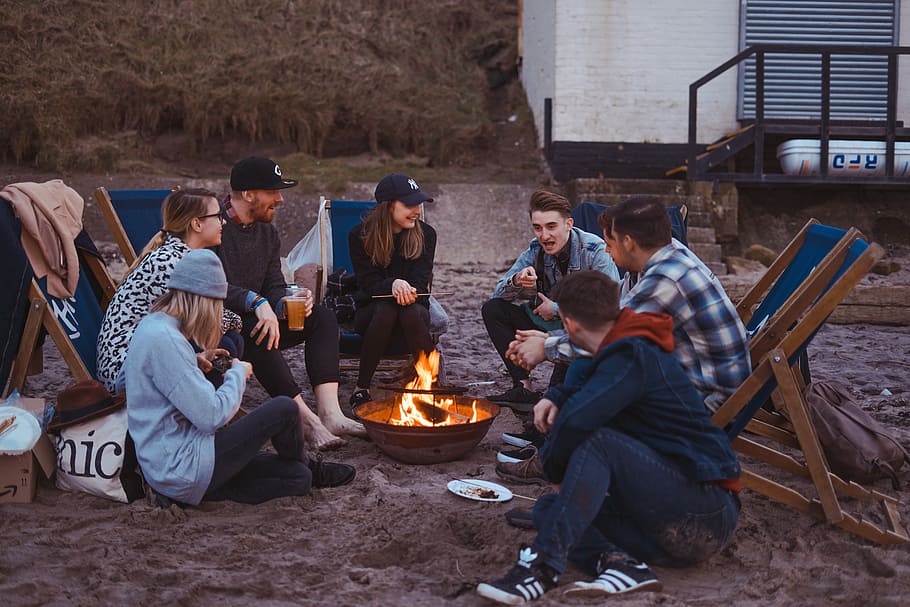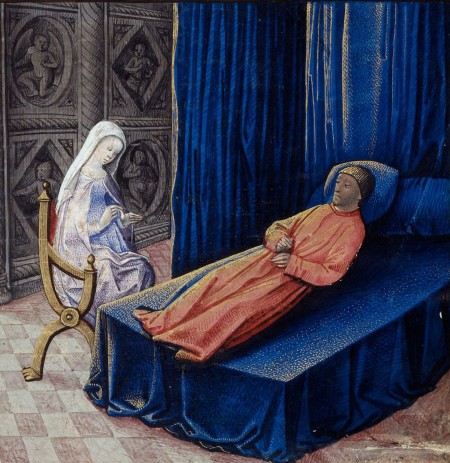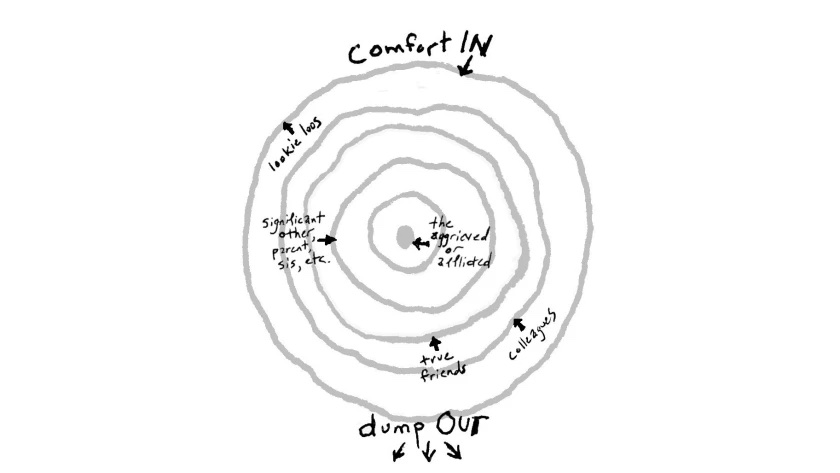Talking philosophically about cancer
I’ve been studying philosophy with the Open University. In my own writing, I’ve always preferred to lead up to a big reveal at the end but my tutor says that, in a philosophy essay, the introduction should summarize everything you are going to say: there should be no surprises later in the essay. I’m going to give it a try.
In this post, I will investigate how the way we talk to people with cancer is different from the way that we normally talk to people and I will suggest some remedies for this unfortunate situation. Finally, I will reveal that I have a brain tumour and describe how I am dealing with this unhappy fact.
In 1991, my girlfriend, Rita, found that her memory was starting to fail and a visit to the hospital revealed that she had a glioma, a type of brain tumour. I was living in London at the time and Rita’s Maltese parents, Edward and Maryanne, came to live with me and to help care for her. They were soon followed by a long procession of visitors. There were friends and neighbours from Malta, colleagues from Rita’s work, countless aunts and uncles from Long Island and eventually Rita’s sister, Georgina, whom you may know.
Some visitors, close friends especially, would just settle right in with a hug and a how are you? and then just chat away, sharing tears and laughter as if they were just old friends hanging out together for the first time in a while.
Other visitors seemed to be there out of the unwritten duty that requires everyone to pay their respects to cancer patients. They know they are required to visit but they don’t know what to do when they get there and behave accordingly. Their eyebrows furrow to the fullest extent and they incline their head and tell you how sorry they are. Then they tell you about their cousin who died of the same cancer last year or about the other cousin who cured their cancer just by eating ground up asparagus spears.

I don’t blame this second category of visitors. I’m the same way when I am in the obligation-to-visit-cancer-patient situation. Now that I am on the other side of the dialogue, so to speak, I thought it might be useful to share some tips on what seems to work and what doesn’t.
If we are old friends, we can just hang out like old friends do. We don’t have to talk about cancer at all if you don’t want to. Don’t feel obliged to mention it like it is an elephant in the room that demands to be mentioned. I run an online community for patients and their families — Smart Patients — and I can’t tell you how many people complain that they are sick of talking about cancer and would rather talk about anything else. Not me though! I love talking about cancer!
I’m more than happy to tell you in excruciating detail what kind of cancer I have, why cancer happens and what my prognosis is (not at the moment though because I have no idea as yet). I might shed a few tears while explaining but I’m OK with that as long as you are. You can cry too if you like. If that’s not your thing, that’s OK. Let’s find something else to talk about.
I like talking about beer, politics, philosophy, art, snowboarding and travel. I like talking about most things actually. I’ve been lucky enough to live a rich and full life and have a lot of stories. Ask me about the time I ran out of money in Tahiti or the time I was almost eaten by a Komodo dragon. Ask me about arriving on Bora Bora in the pouring rain in the middle of the night with nowhere to stay or being chased by a leopard seal on South Georgia. Ask me what it is like to fire a twin-barrelled 30mm anti-aircraft gun at 20 rounds per second or a wire-guided torpedo from a ballistic missile submarine. Or tell me one of your stories. I love stories! People don’t tell enough stories.

One pleasant side effect of having a terminal condition is that my wife and family let me sing Elvis songs in the kitchen now. They’ll even talk philosophy with me occasionally. I had a lovely discussion with Mrs Clown and one of the Smaller Clowns about the Ship of Theseus yesterday. Mrs Clown confessed that she didn’t really understand philosophy before and, now that she does, talking about it is quite fun! I have an essay due on equality soon. I’d love to talk about that!

I have a few pet peeves. If you have a miracle cure for cancer, I’ll listen politely. When you tell me how cutting potatoes out of my diet will cut off the cancer’s supply of starch, I’ll smile and thank you the first couple of times. But the third or fourth time you swear that your aunt cured her cancer by drinking malt vinegar I’ll start to get uncomfortable and try to change the subject. Same deal for more conventional cures. I’m happy to hear your tips to ameliorate chemo symptoms or about some new clinical trial that I should look into. If your suggestion fits in with my plans, I’ll follow it gladly. If it doesn’t, I won’t. I hope that’s OK with you.
I don’t know exactly what my prognosis is yet but I am pretty well informed about the range of possible outcomes. As an occasional Stoic and frequent rationalist, I find it useful to know the median expectation and the worst-case etc. I understand that other people find it comforting to focus on the best possible outcome but I don’t. Not at all. It doesn’t bother me to hear that your uncle survived 53 years with his brain tumour and I am happy to listen but I don’t find it helpful. People tell me I have to have hope but I don’t actually. I have to have a realistic idea of what I am facing so that I can plan accordingly. If you find it helpful to have hope, don’t let me take that away from you, but I’ll deal with this my way thanks!
One last peeve. One of my favourite smart patients, Stephanie, disliked any metaphors for dealing with cancer that involved violence. When someone told her that she needed to “fight to survive” or that she would “win this battle”, she would politely explain that she doesn’t think about her treatment that way. Cancer is not an external invader that needs to be vanquished. It’s a malfunction in my own body that needs treatment and care. Stephanie didn’t lose her battle, she enjoyed her life to the very end and I plan to do the same. Don’t feel bad if you forget and exhort me to fight but don’t be surprised if I gently explain that I don’t feel the same way.
That’s all I can think of for now. I assume you already know about the Ring Theory. Go read about it if you don’t. Quick summary: the patient is in the centre ring, close family is in the next ring, and everyone else is in the outer circle. You are allowed to complain from an inner ring to an outer ring but not from an outer ring to an inner ring. I’m fairly robust and don’t really mind listening to your complaints but The Clown Family won’t enjoy it at all. They will need your support.
I’ve only been dealing with this cancer thing for a week and I reserve the right to change my mind once I have more experience and more information. I’m open to the full range of possible outcomes including the oncologist telling me that it was all a mistake and they had the MRI results upside down. I’m not expecting that though. I’ll learn more on Wednesday.
Feel free to ping me if you want to know more or if you want to hear one of my stories.



